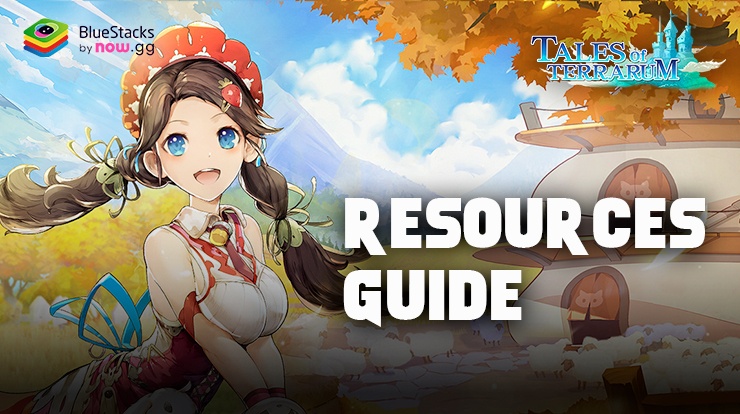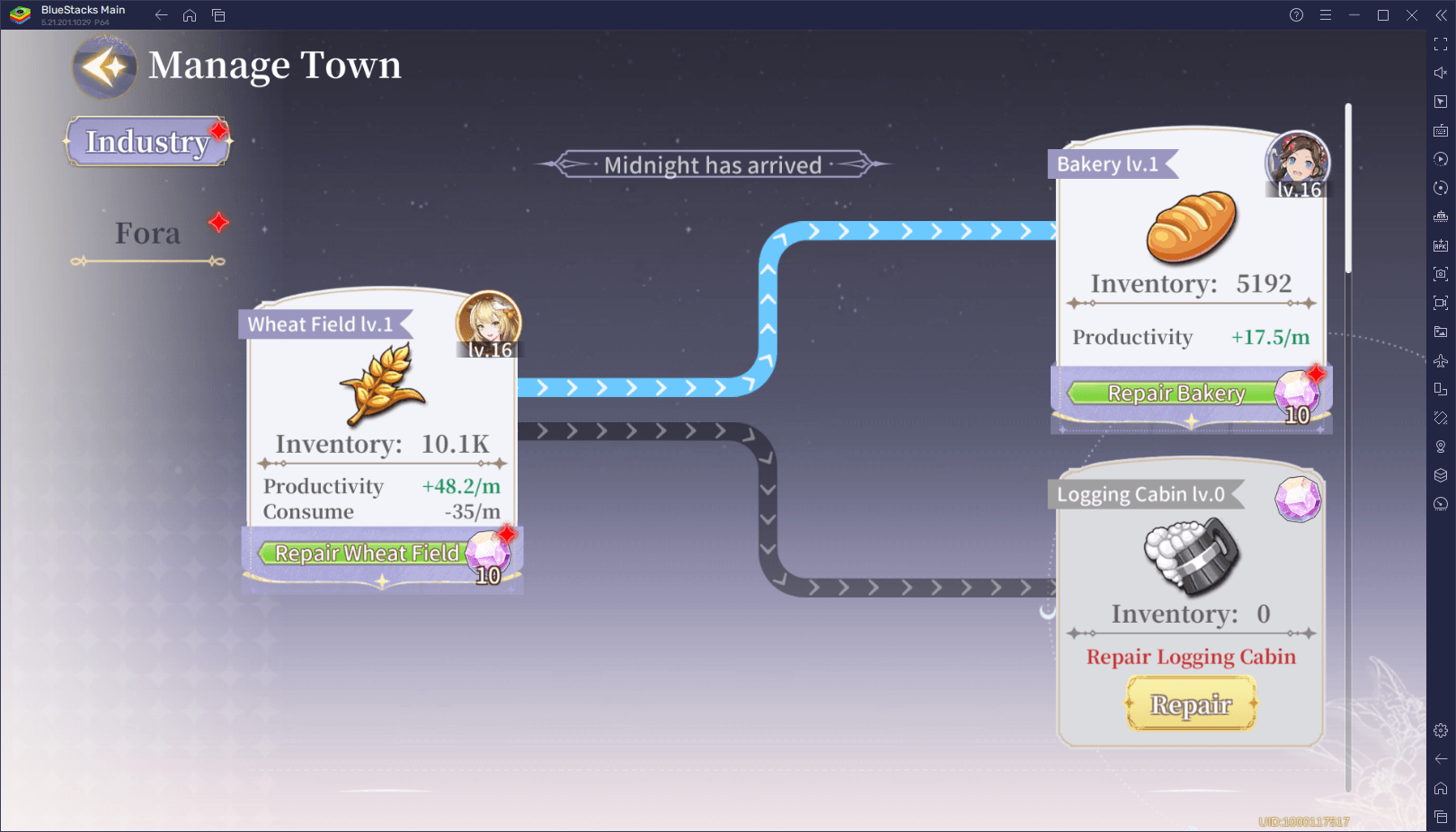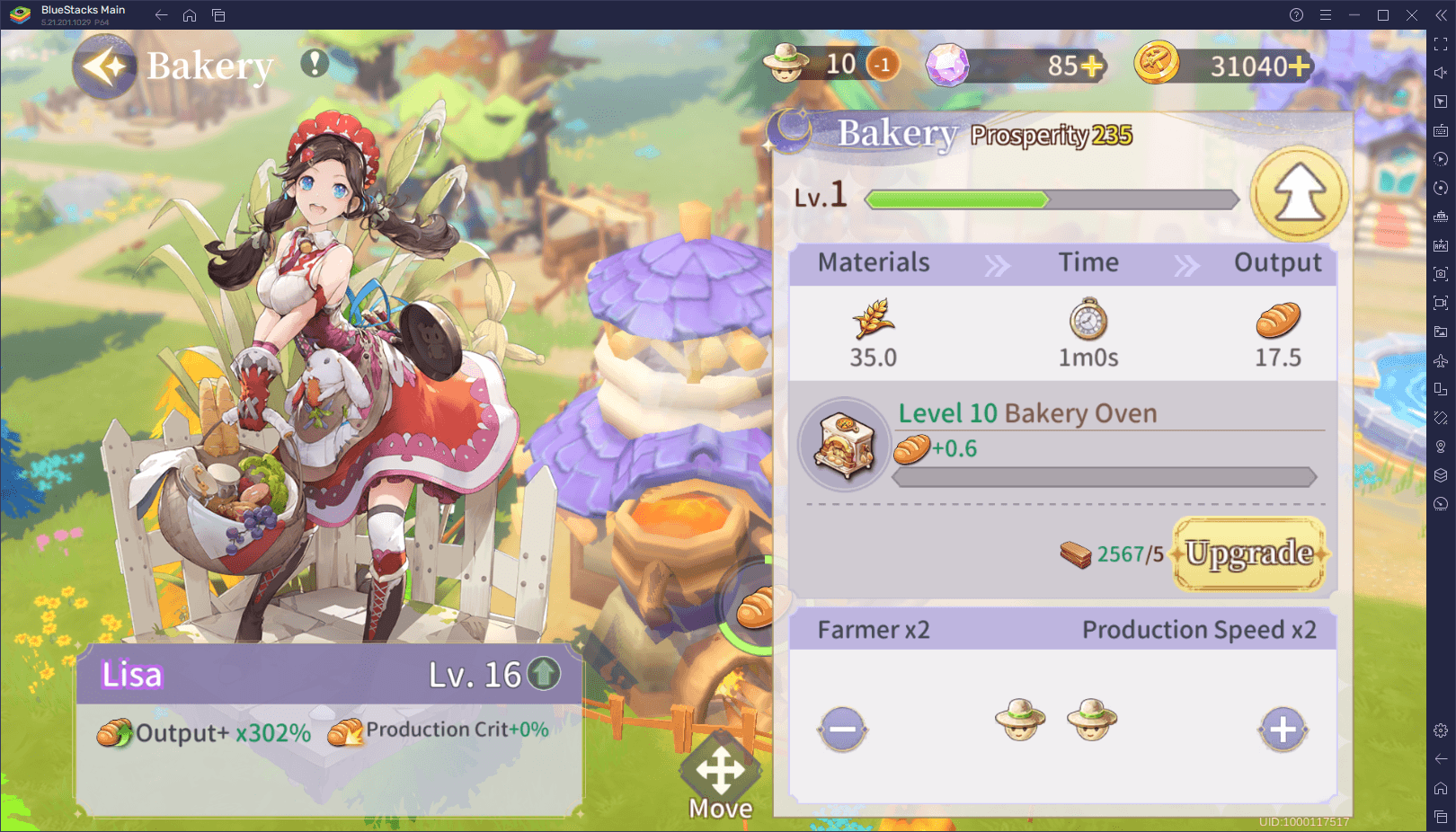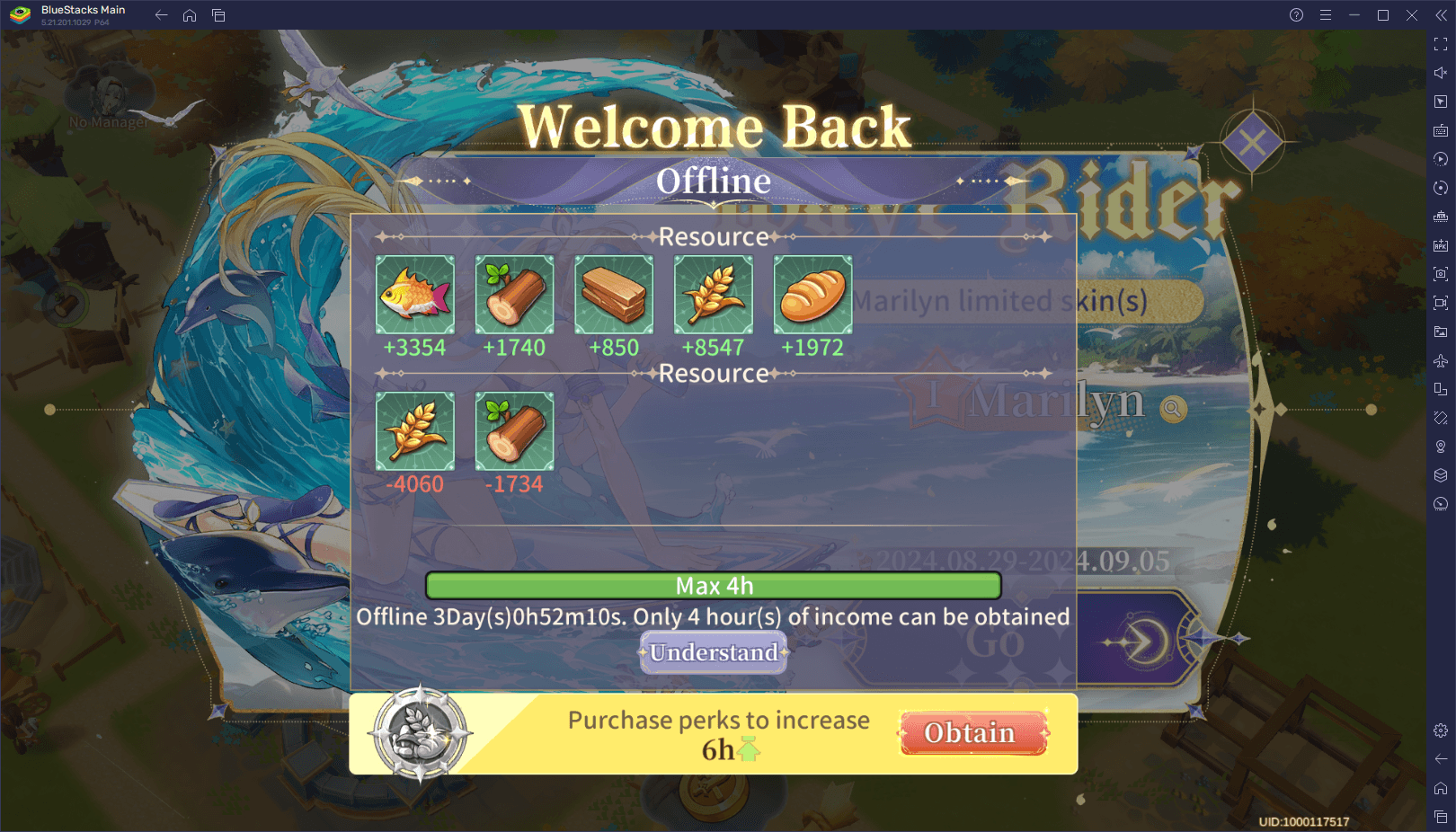Tales of Terrarum Resources Guide: Understanding Production Lines and Their Uses

In Tales of Terrarum, managing resources effectively is crucial to building and expanding your town. From raw materials to processed goods, every resource plays a vital role in the growth and prosperity of your community in this simulation game. Whether you’re producing food for your inhabitants, crafting construction materials for buildings, or preparing items to upgrade your heroes, understanding how these resources work together is key to your success.
This guide will walk you through the various resources available in Tales of Terrarum, how they are produced, and what they can be used for. By mastering your town’s production lines, you’ll be able to keep your town thriving and ensure a steady flow of materials for all your needs. Get up to 20% cashback in nowBux gaming currency and big weekly rewards with every in-app purchase on games from the BlueStacks Store. Play on PC with BlueStacks to unlock more resources like summons, skins, cosmetics and more.
Key Resources and Their Production
As mentioned in our beginner’s guide for this game, there are many different resources that you can produce in your town, which in turn can be processed into other products. Here’s a breakdown of the raw materials you’ll be working with in Tales of Terrarum, as well as where they can be produced:

- Wheat: Grown in the Wheat Fields, this basic resource is essential for feeding your town. Wheat can be processed into two important products:
- Bread: Created in the Bakery, Bread is crucial for upgrading your characters, ensuring they have the strength and stamina needed for their tasks.
- Beer: Brewed in the Logging Cabin, Beer serves as a daily necessity for your inhabitants. It can also be traded for Fora, the common currency in Terrarum.
- Pine Wood: Harvested from the Logging Cabin, Pine Wood is a versatile resource that can be processed into:
- Planks: Produced in the Refinery, Planks are a fundamental construction material used for building and upgrading structures in your town.
- Cotton: Cultivated in the Cotton Fields, Cotton is a key raw material for textiles. It can be processed into:
- Cotton Cloth: Crafted in the Textile Mill, Cotton Cloth is used in the fabrication of garments and other textile-based items, essential for various crafting recipes and town upgrades.
- Copper Ore: Mined from the Copper Mine, Copper Ore is one of the metals you’ll rely on for construction. It can be refined into:
- Copper Ingots: Created in the Copper Smelter, Copper Ingots are a construction material vital for expanding and reinforcing your town’s infrastructure.
- Clay: Extracted from the Quarry, Clay is another essential resource for construction. It can be processed into:
- Ceramic Tiles: Produced in the Tile Workshop, Ceramic Tiles are used as a durable construction material, particularly important for specific buildings and town enhancements.
- Fresh Meat: Obtained from the Hunter’s Hut, Fresh Meat is a basic food resource that can be further processed into:
- Sausages: Prepared in the Prep Room, Sausages are used for upgrading Worker’s Cottages, ensuring your workforce is well-fed and productive.
- Iron Ore: Sourced from the Silver Mine, Iron Ore is a heavy-duty resource that, when refined, becomes:
- Iron Ingots: Created in the Iron Smelter, Iron Ingots are a crucial construction material, used in more advanced building projects and town fortifications.
- Pelt: Gathered from the Pasture, Pelt is a raw material with many uses in crafting. It can be processed into:
- Leather: Produced in the Tailor Shop, Leather is a versatile construction material, essential for a variety of upgrades and crafting needs in your town.
This breakdown should give you an idea of how production lines work in this game. For more information about the supporting structures of your production, feel free to check out our Tales of Terrarum buildings guide.
Processing Resources Into Valuable Products
Once you’ve gathered your raw materials, the next step is processing them into products that will drive your town’s development and support your inhabitants. Understanding how to manage these production lines efficiently will ensure that your town continues to grow and prosper.
- Bread is indispensable for upgrading your Farmer’s Huts. The more Bread you have, the better your craftsmen will become, allowing them to perform better in various tasks. Make sure to keep your Wheat Fields and Bakery running smoothly to maintain a steady supply of Bread.

- Beer not only fulfills the daily needs of your townspeople but also serves as a valuable trade item. By trading Beer for Fora, you can acquire additional resources and items that may be hard to produce locally. Keep an eye on your Beer production to ensure that both your town’s morale and your treasury remain healthy.
- Planks, Copper Ingots, Ceramic Tiles, Iron Ingots, and Leather are all construction materials used for building and upgrading your town’s infrastructure. As your town expands, the demand for these materials will increase, so it’s important to balance their production and ensure you have enough facilities to keep up with growth.
- Cotton Cloth and Leather are also used in crafting, particularly for creating items that can be equipped by your heroes or used in town decoration. By keeping your Textile Mill and Tailor Shop busy, you’ll always have the materials you need for crafting and upgrading.
- Sausages are specifically used for upgrading Worker’s Cottages. Upgrading these cottages ensures that your workers remain productive, which in turn keeps your production lines running efficiently. Prioritizing Sausage production can lead to a more stable and prosperous town.
Balancing Production Lines for Maximum Efficiency
One of the challenges in Tales of Terrarum is balancing the production of raw materials and their processed counterparts. To boost your production and efficiency, please keep in mind the following:
- Plan Ahead: Before starting new construction or upgrades, take stock of your current resources and identify any potential bottlenecks. Make sure your production facilities are operating at full capacity and that you have the necessary materials on hand.
- Upgrade Your Facilities: As you gather more resources, invest in upgrading your production facilities. Higher-level buildings can produce more goods at a faster rate, which will help you keep up with the increasing demands of your growing town.
- Diversify Your Production: Don’t rely too heavily on a single resource or product. Diversifying your production lines ensures that you can meet the varied needs of your town and avoid running out of essential materials when you need them most.

Mastering the resource management in Tales of Terrarum is key to building a thriving town. By understanding how to produce and process resources efficiently, you’ll ensure that your town continues to grow and prosper. To enhance your gameplay experience, consider playing Tales of Terrarum on PC with BlueStacks. With BlueStacks, you’ll enjoy a smoother, more immersive experience, allowing you to manage your town with ease and take your adventure to the next level.















